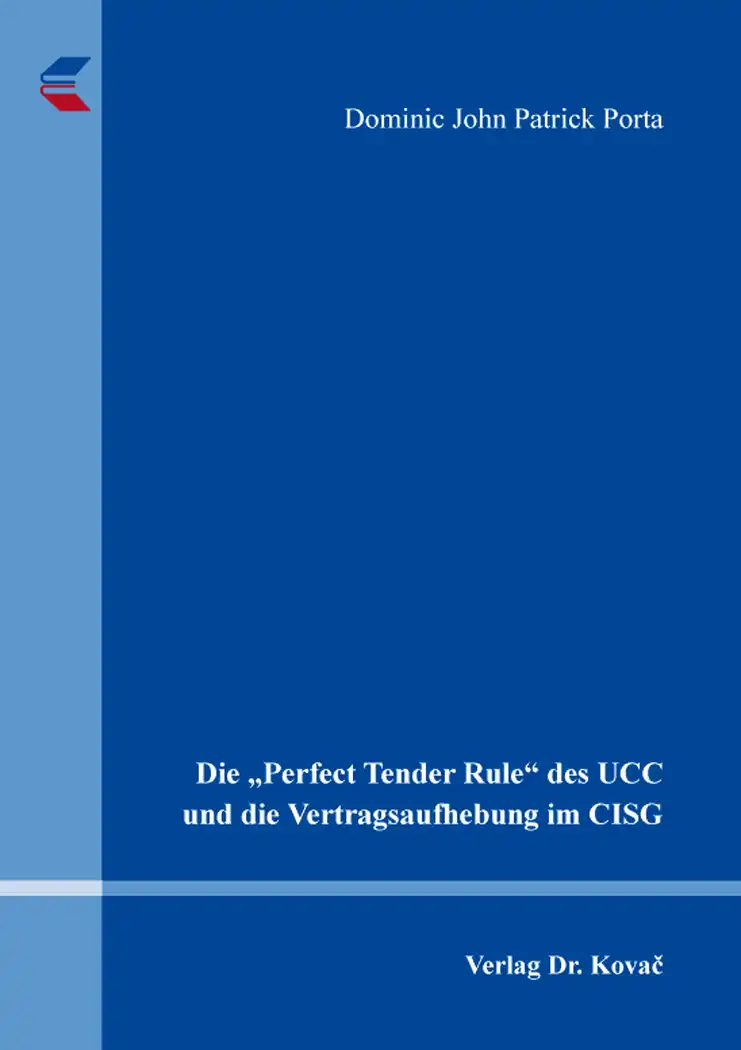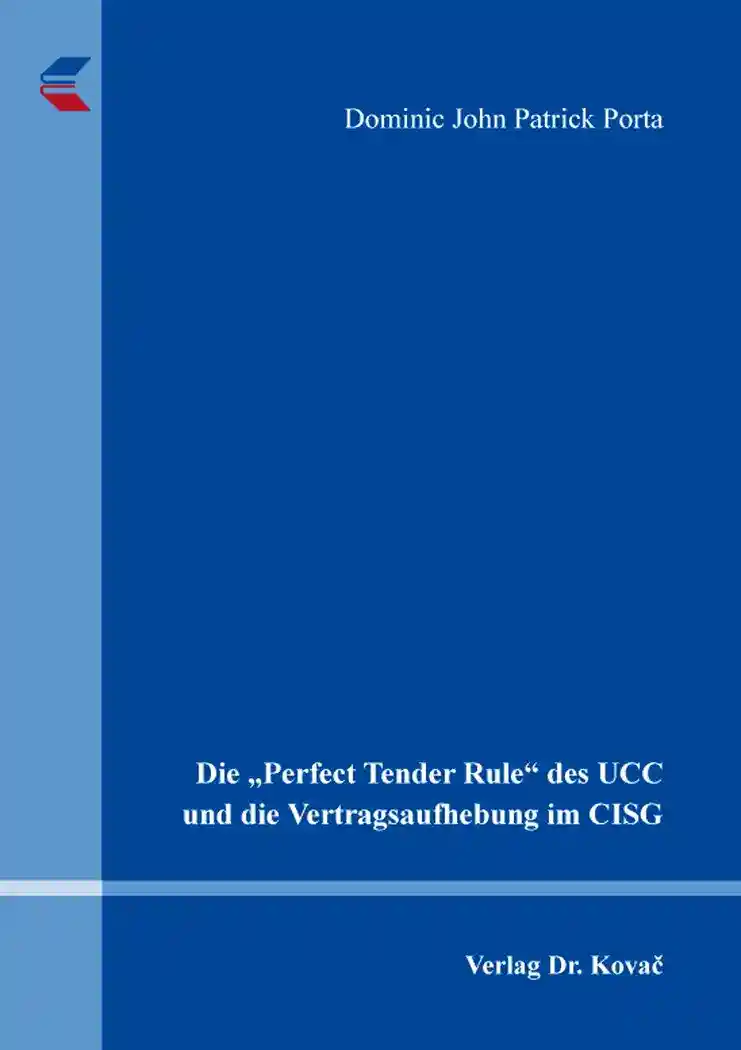Dominic John Patrick PortaThe UCC’s “perfect tender rule” and cancellation of contracts in the CISG
– in englischer Sprache –
Studien zum Internationalen Privat- und Zivilprozessrecht sowie zum UN-Kaufrecht, Band 77
Hamburg 2023, 222 Seiten
ISBN 978-3-339-13276-5 (Print)
ISBN 978-3-339-13277-2 (eBook)
Zum Inhalt
The importance of international trade has increased immensely within the last decades and will not decrease in the future. With developing markets around the world, such as those of the European Union, Asia or Latin America, new trade opportunities are emerging. This development is not least due to the new technologies available to us, which present us lawyers with ever new challenges, which arise for us from the fact that the markets and the technologies develop faster than the corresponding legislation, which often leads to legal uncertainties in international trade. This makes it all the more important to find uniform regulations that guarantee a transnational standard while protecting both buyers and sellers in order to facilitate cross-border trade and ensure legal certainty.
The problem of international trade in goods was recognised earlier at the national level in the USA, which is why the Uniform Commercial Code (UCC) came into force there as early as 1958 in the area of commercial law, and which today is regarded almost without exception as the uniform law of sales within the United States. It is thus the main source of legal literature for the area of trade in goods in the USA.
Among other regulations under commercial law, it contains the so-called legal institution of the perfect tender rule, which translates as "Regel der perfekten Andienung". According to this, a buyer can, among other things, cancel the entire contract for the sale of goods if the seller delivers goods that do not comply with the contract in any way. In other words, the buyer has the right to reject goods if they are not "perfect" upon delivery.
For the area of international trade in goods, the United Nations Convention on Contracts for the International Sale of Goods, also known as the Vienna Sales Convention, UN Sales Convention or CISG, came into force in 1988.
The preamble of the CISG already indicates its ambitious objective. This states that the CISG aims to promote international trade by establishing uniform provisions for international contracts for the sale of goods, taking into account national legal systems. With the CISG, an international regulation should thus be adopted for all sales contracts covered by this convention in order to ensure legal certainty on the one hand and to facilitate the international sale of goods on the other.
To date, the UN Convention on Contracts for the International Sale of Goods has been ratified by 91 states. According to the trade statistics of the WHO, the ten largest world trading nations, with the exception of Great Britain, are also contracting states, which is why it can be assumed that potentially 80% of international contracts for the sale of goods fall under the CISG. At first glance, the Vienna Sales Convention thus appears to be a successful set of rules.
The United Nations Convention on Contracts for the International Sale of Goods also contains provisions on the cancellation of contracts. However, the CISG does not know the legal institution of the perfect tender rule. A different approach to this problem was chosen here. The central prerequisite for cancellation of the contract in the case of delivery of goods that do not conform to the contract is the existence of a material breach of contract.
Even at first glance, one can see that the approaches of the UCC and the Vienna Convention on Contracts for the International Sale of Goods are based on completely different premises. While under US commercial law even the slightest breach of contractual duty is theoretically sufficient for the buyer to be able to cancel a contract unilaterally, under the CISG the breach of contract must be material.
This is one of the reasons why the UN Convention on Contracts for the International Sale of Goods is repeatedly criticised by states with Anglo-American legal systems and consequently not applied or only applied to a limited extent. The United Kingdom, for example, has not ratified the CISG to date. In the United States of America, ratification took place in 1988, but the Americans still rely on their traditional and proven Uniform Commercial Code.
In the further course of this thesis, the different approaches of the UCC and the CISG to contract cancellation will be examined and compared. Thus, the trade in goods law of the USA, one of the largest economic nations in the world, will be compared with the international trade in goods law of the United Nations. Before proceeding to the analysis just mentioned, it is important to obtain a general overview of both sets of rules. Therefore, the respective areas of application as well as the historical development of the UCC and the Vienna Sales Convention as well as the acceptance of the CISG in the Anglo-American legal sphere will first be examined in more detail, in order to then discuss the problems on the basis of a constantly developing example case.
Schlagworte
AufhebungBrexitCISGGlobalisierungHandelsrechtInternationales KaufrechtInternationales RechtKaufrechtPerfect Tender RuleRechtswissenschaftenUCCUniform Commercial CodeUSAVereinte NationenVertragVertragsaufhebungWarenhandelWarenhandelsrechtWirtschaftsrechtIhr Werk im Verlag Dr. Kovač
Weiteres Buch des Autors
Die „Perfect Tender Rule“ des UCC und die Vertragsaufhebung im CISG
Hamburg 2021, ISBN 978-3-339-11386-3 (Print) | ISBN 978-3-339-11387-0 (eBook)

